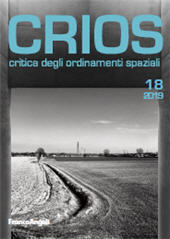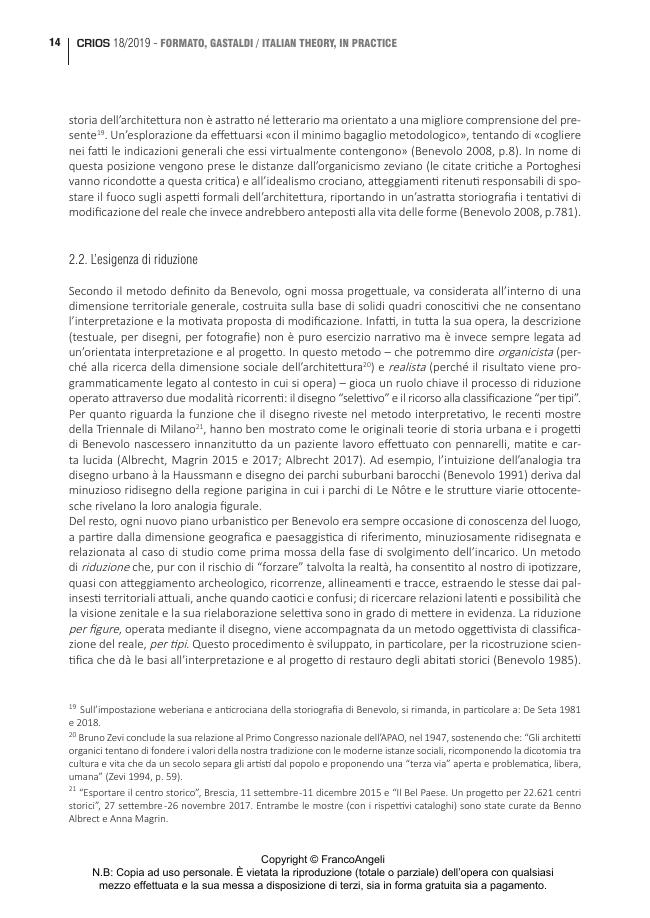Italian theory, in practice : spunti di riflessione sulla ricerca di Leonardo Benevolo
7-20 p.
Il testo propone, a due anni e mezzo dalla scomparsa, alcuni spunti di riflessione sulla figura di Leonardo Benevolo, intellettuale dal carattere poliedrico, protagonista di una lunga stagione di attività in campo culturale, dell'insegnamento, politico, dell'editoria e della professione. Il saggio si concentra su vari aspetti del suo fare ricerca, con attenzione particolare alle diverse scale del progetto di territorio e al tentativo di limitare, mediante il piano, l'influenza della rendita fondiaria. L'attività di Benevolo prova a intrecciare i due temi con l'obiettivo di migliorare le condizioni di vita sociale nella città moderna, valorizzando al contempo gli elementi storici sopravvissuti. Il tutto non è generalizzabile in un modello spaziale univoco, ma si basa su convinzioni teoriche, tecniche e modalità d'intervento legate alle necessità di misurare l'azione con i contesti sociali, economici, ambientali e fisici in cui, di volta in volta, ci si trova ad operare.
Egli appare come una figura di collegamento tra esperienze importanti, collegate da una visione di società e di città che sfugge a schematismi predeterminati cercando la misura costante con la realtà. Sullo sfondo, l'articolo offre spunti di riflessione sulla funzione dell'intellettuale nell'Italia della seconda metà del Novecento, in relazione ai temi legati all'architettura e alla città, ai suoi rapporti con la politica, ai complessi rapporti con il mondo accademico. [Testo dell'editore].
The essay offers, two and a half years after the disappearance, elements of reflection on Leonardo Benevolo, intellectual with a multidimensional character, protagonist of a long season of activities in the fields of culture, teaching, politics, publishing and profession. The article focuses on several aspects of its research, with particular attention to the different scales of the territorial project and the attempt to limit, through the plan, the influence of land rent. His activity tries to interweave the two themes with the aim of improving the conditions of social life in the modern city, at the same time enhancing the historical elements that have survived.
All this cannot be generalized in a univocal spatial model, but is based on theoretical convictions, techniques and methods depending on the need to measure action with social, economic, environmental and physical contexts in which, from time to time, architects and planner are required to act. He appears as a connecting figure between important experiences, interlocked by a vision of society and of the city that escapes to predetermined schematism, by seeking constant measurement with reality. In the background, the article reflects on the function of the intellectual in Italy of the second half of the Twentieth century, in relation to issues related to architecture and urbanism, politics and academia. [Publisher's text].
-
Articles from the same issue (available individually)
-
Information
ISSN: 2531-601X
KEYWORDS
- Urbanistica pubblica, conservazione integrata, regionalismo
- Public planning, integrated conservation, regional studies



